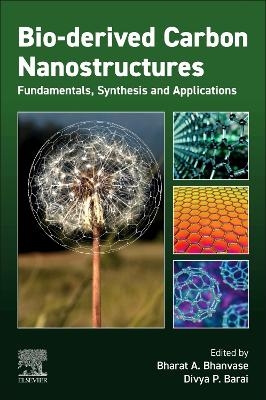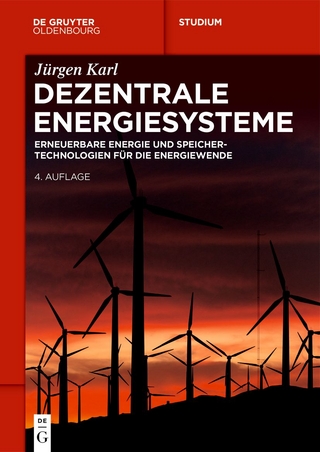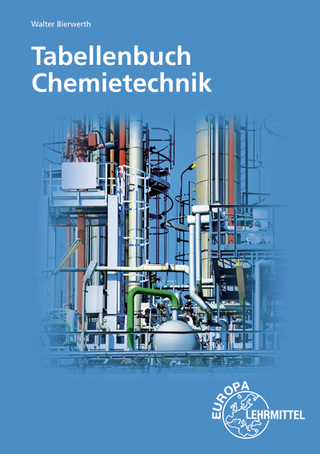
Bio-derived Carbon Nanostructures
Elsevier - Health Sciences Division (Verlag)
978-0-443-13579-8 (ISBN)
Opening with an exploration of raw materials and their structural intricacies, offering readers a profound insight into the transformation of bio-based resources into highly functional carbon nanostructures. These remarkable materials find applications that span energy, environmental solutions, catalysis, and innovative additives. Unveiling the latest technological advancements, this book delves into the exciting realm of emerging applications and the challenges of scaling up these technologies for widespread use. These novel materials originate from nature, promising a sustainable future.
Ideal for students, researchers and those in industry focusing on materials science and biomass utilization, and chemical engineers, this book is the key to unlocking the potential of novel carbon-based nanomaterials for a sustainable tomorrow.
Dr Bharat A. Bhanvase is a Professor and Head of the Chemical Engineering Department at Laxminarayan Institute of Technology, Rashtrasant Tukadoji Maharaj Nagpur University, Nagpur, Maharashtra, India. He has 12 years of experience in research focused on Wastewater Treatment, Cavitation based Nanomaterials and Nanocomposites, Process Intensification, Microfluidics, and Nanofluids. He completed his PhD in Chemical Engineering from the University of Pune. He has published 80 articles in international journals, 4 in national journals, and presented 8 papers in international conferences and 12 in national conferences. He has written 50 book chapters in internationally renowned books, edited 8 books and authored 1 book. He is likewise a reviewer for 97 international journals. Dr Bhanvase has one Indian Patent under his name. He is a fellow of Maharashtra Academy of Sciences (MASc) 2020 and received the Best Scientist Award from Rashtrasant Tukadoji Maharaj Nagpur University, Nagpur in the year 2017. He is a recipient of Young Scientists (Award) start-up research grant from Science and Engineering Research Board, New Delhi (India) in the year 2015. Under this award, he has worked on various aspects of nanofluids in detail. Ms. Divya P. Barai is currently a PhD scholar working on nanofluids under the supervision of Dr Bharat A. Bhanvase at the Laxminarayan Institute of Technology, Rashtrasant Tukadoji Maharaj Nagpur University, Nagpur. She has completed her M. Tech in Chemical Engineering from Laxminarayan Institute of Technology, Rashtrasant Tukadoji Maharaj Nagpur University, Nagpur in 2018. As a part of her master’s degree, she studied various thermophysical properties and heat transfer applications of nanofluids. She received her B.Tech degree in Chemical Technology (Pulp and Paper Technology) from Laxminarayan Institute of Technology, Rashtrasant Tukadoji Maharaj Nagpur University, Nagpur in 2016. Her research interests lie in the field of synthesis and characterization of different nanomaterials for their application as nanofluids in heat transfer systems. She has published 11 research articles in international journals. She has also contributed 5 book chapters in internationally renowned books and authored 1 book.
Section I: Introduction to bio-derived carbon nanostructures
1. Introduction to bio-derived carbon nanostructures
2. Bio-based raw materials for preparation of carbon nanostructures
3. Role of structure of bio-based raw materials for their conversion to carbon nanostructures
4. 0D, 1D, 2D carbon nanostructures derived from bio-based material
Section II: Preparation of bio-derived carbon nanostructures
5. Fundamentals of conversion of bio-based material into carbon nanostructures
6. Preparation of bio-derived carbon nanostructures by pyrolysis
7. Preparation of bio-derived carbon nanostructures by chemical vapor deposition
8. Preparation of bio-derived carbon nanostructures by mechanical activation
9. Surface functionalization and nano-engineering of bio-derived carbon nanostructures
10. Characterization of bio-derived carbon nanostructures
11. Structure of bio-derived carbon nanostructures and its effect on properties
12. Influence of processing parameters on properties/characteristics of bio-derived carbon nanostructures
Section III: Applications of bio-derived carbon nanostructures
13. Role of properties of bio-derived carbon nanostructures for different applications
14. Bio-derived carbon nanostructures for energy applications
15. Bio-derived carbon nanostructures for environmental applications
16. Bio-derived carbon nanostructures for catalysis
17. Bio-derived carbon nanostructures as additives in polymeric composite materials
Section IV: Future prospects and challenges for bio-derived carbon nanostructures
18. Emerging applications of bio-derived carbon nanostructures and future prospects
19. Challenges for scale-up of production and applications of bio-derived carbon nanostructures
| Erscheinungsdatum | 22.08.2024 |
|---|---|
| Verlagsort | Philadelphia |
| Sprache | englisch |
| Maße | 152 x 229 mm |
| Gewicht | 450 g |
| Themenwelt | Naturwissenschaften ► Chemie ► Technische Chemie |
| Technik ► Maschinenbau | |
| Technik ► Umwelttechnik / Biotechnologie | |
| ISBN-10 | 0-443-13579-7 / 0443135797 |
| ISBN-13 | 978-0-443-13579-8 / 9780443135798 |
| Zustand | Neuware |
| Haben Sie eine Frage zum Produkt? |
aus dem Bereich


